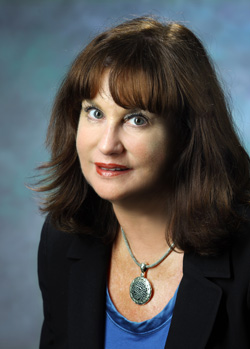August 1, 2011
Focusing on women in medicine
On July 1, not much changed in the daily routine of Barbara Fivush. The professor of pediatrics at the School of Medicine still had the same office in the David M. Rubenstein Child Health Building, and held the same role as division chief of Pediatric Nephrology. She spent her early morning as always, poring over emails.
Fivush did, however, have something extra in spades—clout.
Earlier last month, Fivush began her role as the school’s associate dean for women in science and medicine, a newly created position in the Office of the Vice Dean for Faculty.
Previously, Fivush had been director of the Office of Women in Science and Medicine, which she helped create in 2008. The office evolved from the recommendations of the 2005 Committee on Faculty Development and Gender and the increasing need to provide School of Medicine women faculty with mentoring and educational and networking opportunities.
Janice Clements, vice dean for faculty at the School of Medicine, said that the associate dean position would give Fivush a more formal role and greater ability to take action.
“We wanted to make this a permanent, dean-level position, as the needs and issues will not go away,” Clements said. “We’ve made great strides here in terms of gender equity over the past two decades, but there are still issues associated with hiring and promotion, and salary equity. In this new role, Barbara will continue her important efforts to promote and retain our talented women faculty.”
Under Fivush’s leadership, the Office of Women in Science and Medicine has worked to increase the representation of women in leadership roles and on high-level School of Medicine committees. She has developed several innovative programs, including a leadership program for women faculty, now in its second year. She also initiated an annual event where the recipient of the Vice Dean’s Award for the Advancement of Women is recognized, and worked closely with the Vice Dean’s Office to study and report on faculty salary equity.
Fivush joined the School of Medicine faculty in 1984 in the Department of Pediatrics after completing her residency and a fellowship in pediatric nephrology at the Johns Hopkins Children’s Center. In 1993, she became the division chief of Pediatric Nephrology, and since that time has dramatically increased the number of faculty in the division, expanded clinical and research initiatives, and developed an innovative fellowship training program. She was promoted to professor of pediatrics in 2001.
Fivush said that the continuing goals of the Office of Women in Science and Medicine are to provide networking and educational activities for women, create leadership opportunities and, overall, promote gender equity at all levels.
“We will examine issues related to leadership, salary, physical space, anything and everything,” she said. “It’s our goal to find out why these issues might exist and help fix them.”
Currently, 36 percent of the School of Medicine faculty are women. However, Fivush points out that only three of the 32 department chairs are women, and that males make up 80 percent of the total number of full professors. Women are also underrepresented, she said, in surgical departments.
“We want to look closely at faculty and leadership composition and ensure that we have better gender equity moving forward,” she said.
To address this issue, Fivush implemented the Leadership Program for School of Medicine Women Faculty, designed for female professors at all levels. The program’s faculty offer inspiration and valuable career advice along with insight into the leadership development needs that are unique to women. The cohort program consists of networking events, a Myers-Briggs profile
test and eight half-day seminars, including ones titled “Crucial Conversations,” “Negotiation Skills,” “Speak Like a Pro” and “Influencing for Impact.”
The women are nominated for the program based on potential for leadership. For the first cohort, 40 women were selected. For the second year, which is wrapping up, 45 were chosen from 80 applications.
Fivush plans to have the two cohorts come together later this year for peer-to-peer mentoring groups. She also plans to introduce an emerging leadership course, targeted to instructors and more-junior assistant professors, that will teach mentoring skills and how to write letters of recommendation and NIH grant applications.
Fivush will also continue to look into the composition of search committees, particularly for high-level positions, to ensure that they possess gender equity.
“In the past, you could only chair a search committee if you were a full professor, and since there were so few women full professors, most of the searches were chaired by men,” she said. “But that has changed. Janice [Clements] looks into the composition of these committees and makes sure they are culturally correct in terms of gender and ethnicity and race. Ultimately, we want a good, fair search that finds the best candidate.”
In the coming months, Fivush will meet with department chairs, search committee chairs and university leadership to introduce herself and get a better feel for any gender-related issues. As an associate dean, Fivush will attend the monthly meetings of the medical faculty’s advisory board. She will also work closely with Brian Gibbs, associate dean for diversity and cultural competence at the School of Medicine.
“Hopefully, this position will open some doors and allow me to create better opportunities for women here,” she said. “It may not directly change the work I’m doing on a daily basis, but it might change the impact of our work.”


